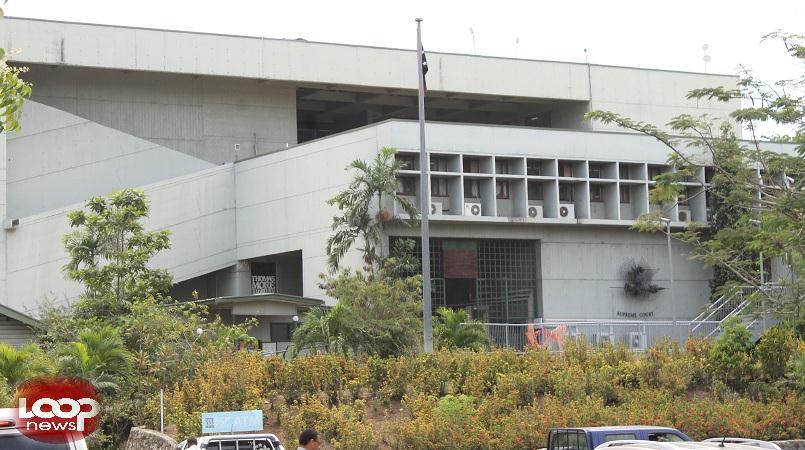
A man from Manus, who was sentenced in 2015 to a term of 5 years for misappropriating funds from Ijivitari in 2007, will serve an additional 8 years for his second misappropriation case.
The 8-year sentence was added onto that 5 year sentence by the Waigani National Court on Monday.
David Kumalau Pondros was sentenced to an additional 8 years yesterday for misappropriating K5.3 million, funds that were meant for a Coconut Integration Facility project to be built in the Tol area of the Pomio District in East New Britain, between 2008 and 2010.
He was serving a 5-year sentence for misusing K400,000, monies paid to his company for the purpose of conducting feasibility studies for the construction of jetties along the cost of Ijivitari in Northern Province. At the time he was convicted and imposed the additional term.
Justice Panuel Mogish sentenced Pondros to 10 years on Monday, after he convicted him on April 11 for dishonestly applying to his own use and the use of others K5,317,375.16, money belonging to the state.
He suspended two years from that 10-year sentence. Pondros will be put on two years good behaviour bond after he is released from Bomana.
The court ordered that he will continue serving the 8-year sentence term after he serves the current 5 year sentence. He will serve a total of 13 years in prison.
Following the court’s finding of guilt against Pondros in April, he addressed the court in May, apologising to the people of Pomio and explaining why the project could not be completed.
“I am really sorry that the defunct Task Force Sweep Team, which was created and sanctioned by the O’Neill government in 2011…interrupted the project midway hence the project was not delivered to the Pomio people,” he told the court during submissions on his sentence.
“However, many people whom we know benefitted from such funds in tens of millions, and yet they never delivered the projects under this program and other Public Investment Program projects.
“They had not been investigated and arrested by Task Force Sweep Team, and they are still out there because the net of justice had not caught them, and they may have escaped prosecution.”
Pondros blamed the lack of proper monitoring and assessment of the project on the Department of National Planning and the Pomio JDP&BPC for the project turning out the way it did.
“If there was proper assessment carried out by the proper authorities, I believe my technical team would prepare a report as briefly mentioned in the feasibility study that the project was delayed,” he went on to say.
He said the project was delayed because the land was not acquired in Tol area of the Pomio district, and that the project had to change to a new site in Kokopo, where existing infrastructural services and volumes of coconut trees were readily available.
“The delay in securing the land in Kokopo led to additional cost, which would have contributed to some misunderstanding with the National Planning and the Pomio District,” Pondros told the court in May.
The trial judge’s view was otherwise.
Justice Mogish said in his sentence that it was not correct to suggest that the sweep team interrupted the project because by the time they were engaged in 2011, all the money earmarked for the project had been misappropriated.
“There was never a further submission accepted by the committee (JDP&BPC) and approved by the department (National Planning) for the relocation of the site. The reason advanced by the offender has no basis whatsoever. It is a lame excuse,” the trial judge said.
Pondros is the managing director of David Consultants and Associates Ltd.
The court had found that between October 1, 2008 and October 31, 2010, he submitted a proposal for a Coconut Integration Facility project to be built in the Tol area of the Pomio District in East New Britain.
The proposal was submitted to (then) National Planning Minister Paul Tiensten on 30 October, 2008.
It was approved and a letter was written by the Minister on April 16, 2009, advising his Secretary Joseph Lelang that funding was approved for a feasibility study to take place.
The first payment of K500,000 was paid on 22 April, 2009, for the feasibility study. On November 13, 2009, the second payment of K2.5 million was made and a further K3 million was paid on 22 June, 2010.
From the sum of K6 million, the court found that only K682,624.84 was used to purchase building materials which were left at the Rabaul Wharf.
The rest of the monies were used to pay for things unrelated to its intended purpose.
